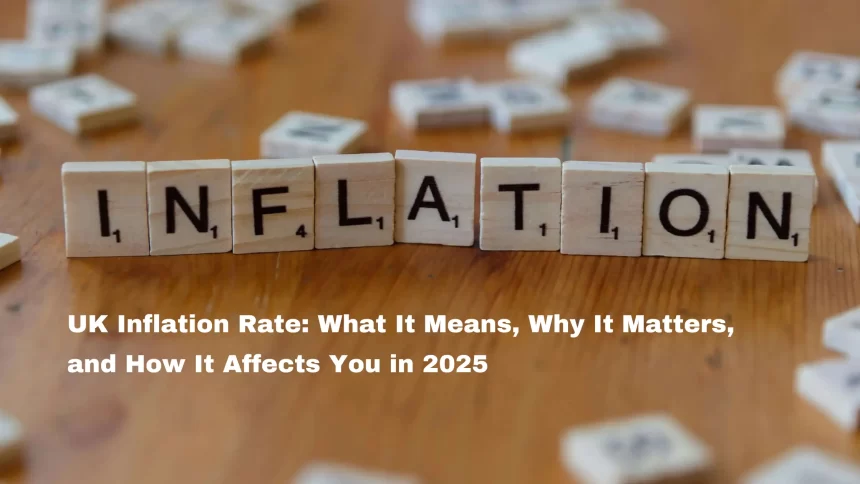The UK inflation rate is a hot topic in 2025, affecting everything from the price of your weekly grocery shop to your mortgage payments and savings. As inflation shifts, so too do interest rates and household expenses. But what does inflation mean, and why is it so important for everyday people in the UK?
In this article, we’ll break it down clearly, so you understand how the inflation rate works, why it’s changing in 2025, and what you can do to protect your money.
What is the UK Inflation Rate?
Inflation is the rate at which prices for goods and services increase over time. In the UK, inflation is commonly measured by the Consumer Prices Index (CPI). When inflation is high, your money doesn’t stretch as far, meaning what cost £1 last year might now cost £1.10.
The Bank of England aims to keep inflation at 2%. If it rises above that, it might increase the base interest rate to slow things down.
Latest UK Inflation Rate Update (May 2025)
- Current inflation rate (CPI): 3.4% (as of April 2025, according to the Office for National Statistics)
- Target inflation rate: 2%
- Bank of England base rate: 4.75% (adjusted to combat persistent inflation)
Fact: In early 2022, UK inflation hit a 41-year high at 11.1%, largely due to energy prices and post-pandemic economic turbulence. While it has since dropped, inflation remains above the 2% target.
How Does Inflation Affect You?
- Cost of Living
Rising inflation often means higher prices for essentials like food, fuel, and energy. - Savings
Inflation erodes the real value of your savings. If your interest rate is lower than the inflation rate, your money is effectively shrinking in value. - Mortgages and Loans
The Bank of England base rate often increases in response to inflation, meaning variable-rate mortgage holders might see higher monthly payments. - Wages
If wages don’t rise in line with inflation, people may struggle to keep up with rising costs.
Why the Bank of England Watches Inflation Closely
The Bank of England uses the inflation rate as a key signal to adjust monetary policy. If inflation is too high, it raises interest rates to cool down the economy. If inflation is too low, it may lower rates to encourage spending.
Their next base rate review is scheduled for Thursday, June 19, 2025, at 11:00 UTC, which could bring new changes depending on how inflation behaves.
What’s Causing Inflation in 2025?
- Energy and fuel prices stabilising but still elevated
- Global supply chain adjustments
- UK wage growth outpacing productivity
- Persistent demand in housing and services
✅ Tips to Protect Yourself Against Inflation
- Choose savings accounts with rates above inflation, or fixed-rate bonds
- Pay off high-interest debt quickly
- Budget for price increases in essential areas
- Consider index-linked investments
Frequently Asked Questions (FAQs)
What is the current UK inflation rate?
As of April 2025, the UK inflation rate (CPI) stands at 3.4%.
Why is the UK inflation rate so important?
It affects your cost of living, savings, and interest rates, making it a key factor in household financial planning.
How often is the UK inflation rate updated?
The Office for National Statistics (ONS) publishes inflation figures monthly.
Does inflation mean prices will always rise?
Not necessarily. Inflation can fall or even go negative (deflation), but a low, stable rate is generally preferred for economic growth.
What does the Bank of England do if inflation is high?
It usually raises the base interest rate to reduce spending and slow down inflation.
Final Thoughts on the UK Inflation Rate
The UK inflation rate affects us all—whether you’re a saver, homeowner, or just trying to manage your weekly budget. With inflation still above the Bank of England’s target in 2025, it’s more important than ever to understand how it works and take steps to protect your finances.
Disclaimer: This article is for informational purposes only and does not constitute financial advice. Please consult with a financial advisor or official sources like the Bank of England for accurate and personalised information.





